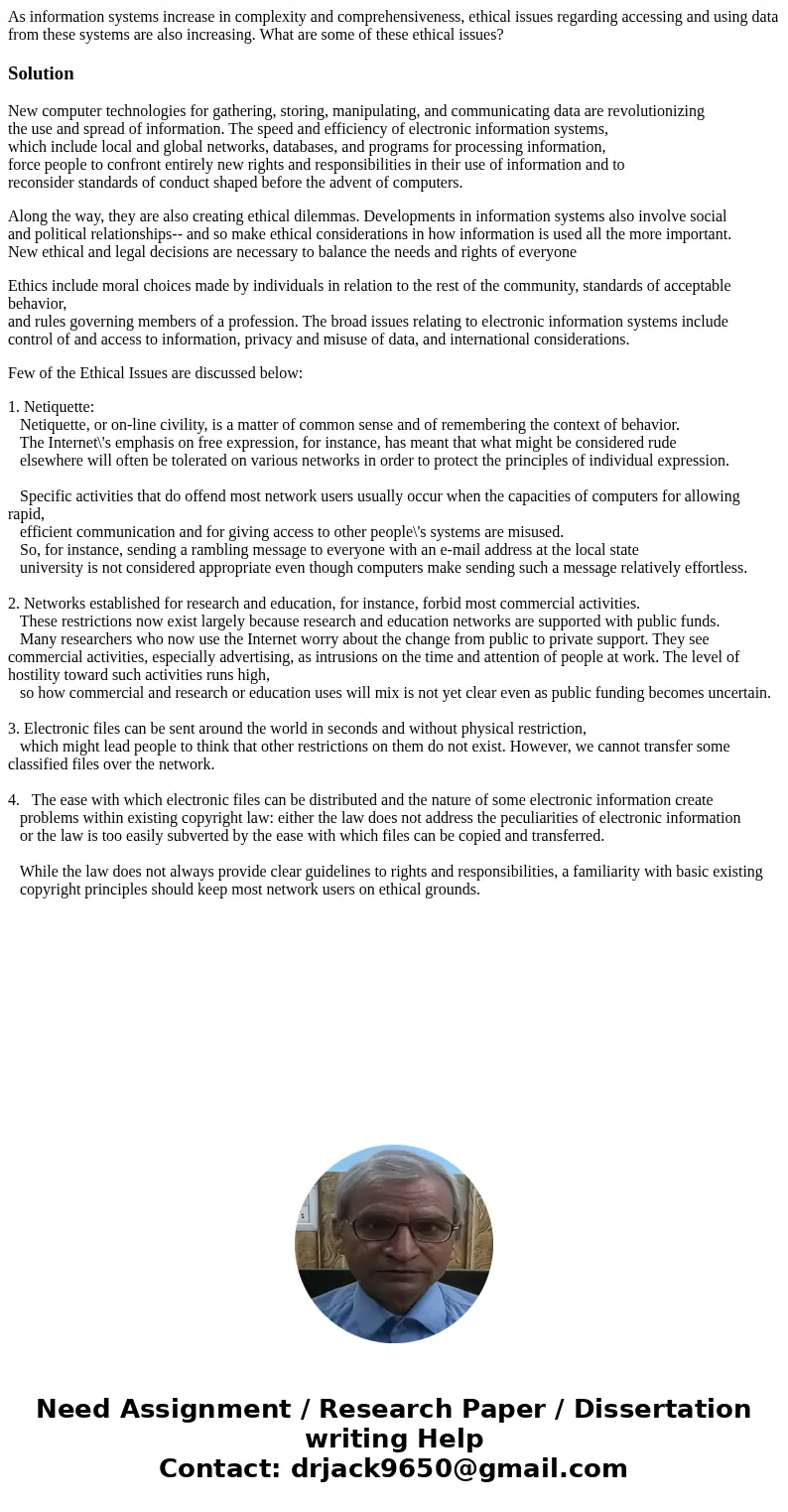As information systems increase in complexity and comprehens
As information systems increase in complexity and comprehensiveness, ethical issues regarding accessing and using data from these systems are also increasing. What are some of these ethical issues?
Solution
New computer technologies for gathering, storing, manipulating, and communicating data are revolutionizing
the use and spread of information. The speed and efficiency of electronic information systems,
which include local and global networks, databases, and programs for processing information,
force people to confront entirely new rights and responsibilities in their use of information and to
reconsider standards of conduct shaped before the advent of computers.
Along the way, they are also creating ethical dilemmas. Developments in information systems also involve social
and political relationships-- and so make ethical considerations in how information is used all the more important.
New ethical and legal decisions are necessary to balance the needs and rights of everyone
Ethics include moral choices made by individuals in relation to the rest of the community, standards of acceptable behavior,
and rules governing members of a profession. The broad issues relating to electronic information systems include
control of and access to information, privacy and misuse of data, and international considerations.
Few of the Ethical Issues are discussed below:
1. Netiquette:
Netiquette, or on-line civility, is a matter of common sense and of remembering the context of behavior.
The Internet\'s emphasis on free expression, for instance, has meant that what might be considered rude
elsewhere will often be tolerated on various networks in order to protect the principles of individual expression.
Specific activities that do offend most network users usually occur when the capacities of computers for allowing rapid,
efficient communication and for giving access to other people\'s systems are misused.
So, for instance, sending a rambling message to everyone with an e-mail address at the local state
university is not considered appropriate even though computers make sending such a message relatively effortless.
2. Networks established for research and education, for instance, forbid most commercial activities.
These restrictions now exist largely because research and education networks are supported with public funds.
Many researchers who now use the Internet worry about the change from public to private support. They see commercial activities, especially advertising, as intrusions on the time and attention of people at work. The level of hostility toward such activities runs high,
so how commercial and research or education uses will mix is not yet clear even as public funding becomes uncertain.
3. Electronic files can be sent around the world in seconds and without physical restriction,
which might lead people to think that other restrictions on them do not exist. However, we cannot transfer some classified files over the network.
4. The ease with which electronic files can be distributed and the nature of some electronic information create
problems within existing copyright law: either the law does not address the peculiarities of electronic information
or the law is too easily subverted by the ease with which files can be copied and transferred.
While the law does not always provide clear guidelines to rights and responsibilities, a familiarity with basic existing
copyright principles should keep most network users on ethical grounds.

 Homework Sourse
Homework Sourse